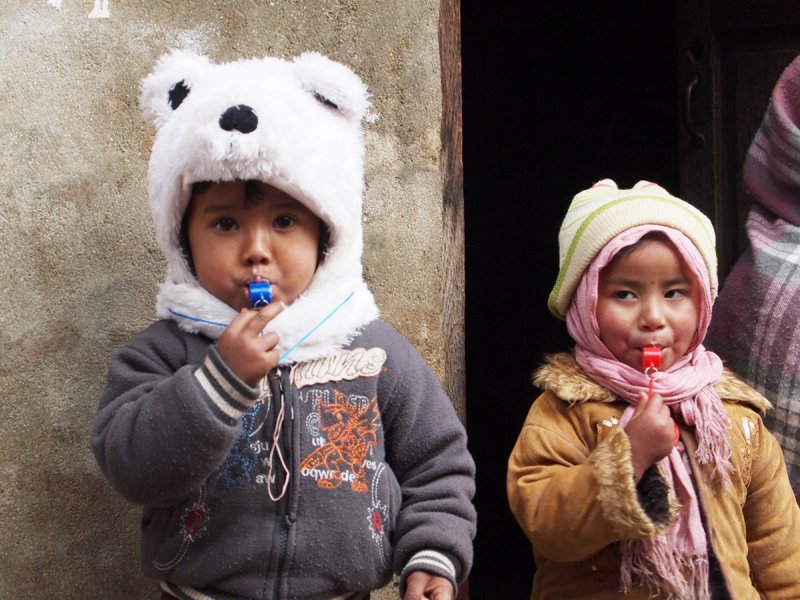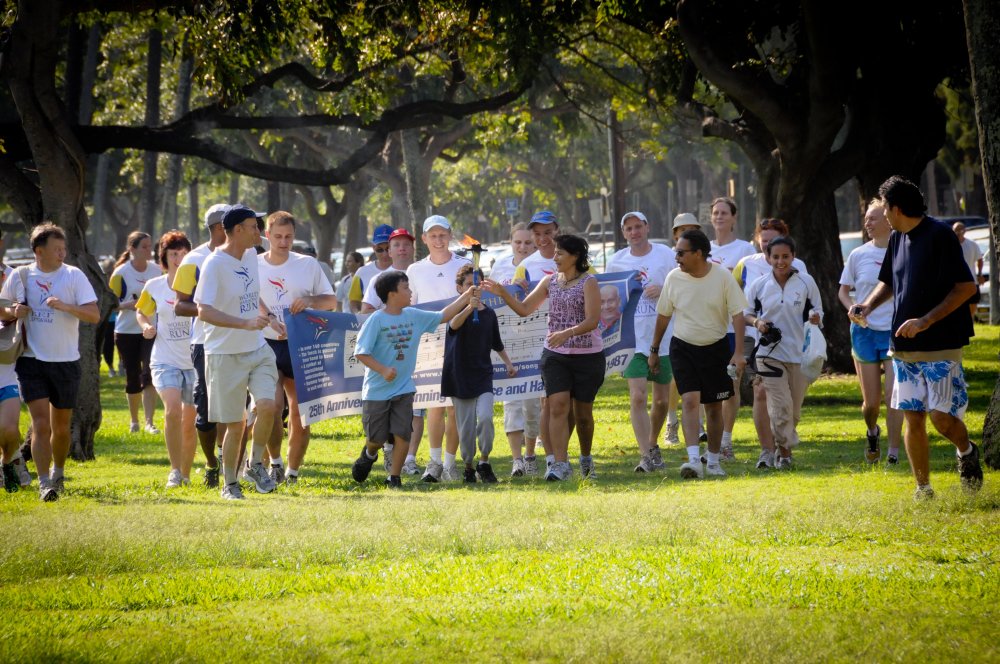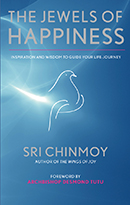Every day there is only
One thing to learn:
How to be honestly happy.

Top 5 Things That Increase Your Happiness
Confirmed by Global Research but Easy to Manage on a Personal Level
It turns out that discovering what keeps us from being happy is not only a personal issue, but an issue that world bodies, policy makers, leading economists, environmentalists, and researchers, all around the world, are interested in addressing. What is promising is that the leaders in many of these disciplines (or professions) are beginning to work together to help make each one of us—and our 6,999,999,999 fellow earthly inhabitants—happier!
Over the past 30 years or so, the research on happiness and well-being has grown to be quite extensive. For example, there are different ways of scientifically measuring happiness (happiness index, subjective well-being index, life satisfaction index) and many things contribute to our happiness. Certain things, like governance and its impact on our lives, are out of our immediate control, or the time it would take to make a change means it is essentially out of our control. But many things we do have influence over, and small changes on our part can lead to big changes in how we feel.
According to the 2012 World Happiness Report, co-authored by Jeffrey Sachs, there are many factors that contribute to our happiness or our “misery.” ((Helliwell, J., Layard, R., & Sachs, J. World Happiness Report. (2012). From www.earth.columbia.edu)) In this article I discuss five factors that research has shown can affect our happiness and that we have some control over. The order in which they are listed does not reflect any significance, as I see that they all serve equally in determining how happy we feel.
Home Environment
Where we live has been scientifically proven to affect how happy we are. ((Helliwell, J., Layard, R., & Sachs, J. World Happiness Report. (2012). )) Certain aspects of our home’s physical environment or location may be out of our control due to, for example, financial or other constraints. We are not always able to make immediate changes to the neighborhood we live in, the environmental challenges we face, the distance traveled to work (or school), the people in our household or the country we live in. What are we able to change?
Look around your home, your room.  There are always opportunities to make even modest changes that add up to big changes in how you feel. Is repainting out of the question? Hang a few inexpensive scenes of nature or other uplifting images on the walls. Is the furniture looking worn, but tight finances prevent new purchases? Add a pretty doily, runner, cushion or some other little touch. If it’s already second or third-hand furniture, paint a design or even affix wallpaper! Take a look here for other ideas, like removing clutter.
There are always opportunities to make even modest changes that add up to big changes in how you feel. Is repainting out of the question? Hang a few inexpensive scenes of nature or other uplifting images on the walls. Is the furniture looking worn, but tight finances prevent new purchases? Add a pretty doily, runner, cushion or some other little touch. If it’s already second or third-hand furniture, paint a design or even affix wallpaper! Take a look here for other ideas, like removing clutter.
Another thing we can do is add ambiance. Play music, not just any music, but music that elevates your spirit. While silence is golden, and moments of silence that allow us to reflect or contemplate are invaluable, music can literally heal much of what ails us.
Work Environment
Our work environment is important because whether we have a job, work for ourselves, or are seeking employment, the bottom line is that work takes up several hours of our day. If our work conditions are miserable, so are we. The research confirms, regardless of what our job is, that satisfying, quality work helps us to feel happier. ((Helliwell, J., Layard, R., & Sachs, J. World Happiness Report. (2012). From www.earth.columbia.edu))
Employers are catching on to this. In my place of work, seminars and workshops on topics like “Leadership in the Workplace,” “Working Successfully with Teams,” “How to Approach Difficult Teens,” and “Caring for Aging Parents” are promoted on a weekly basis. Employers know that when individuals are happy, in and out of the workplace, everyone benefits.
But if we can’t make immediate changes to our work environment, what can we do? Similar to what we can do in our home environment, but on a smaller scale, we can add little touches—for instance, we can place an inspiring picture or a flower in our workspace or play a little music (if it doesn’t disturb others) to uplift our mood. You may also want to look at Abhinandan’s article on work and life balance.
Mental Health
Not surprising, 30 years of research corroborates what we have known for centuries: Our mental state affects our ability to experience happiness. ((Helliwell, J., Layard, R., & Sachs, J. World Happiness Report. (2012). From www.earth.columbia.edu)) What is new is that world bodies, like the U.N. and UNESCO and global policy makers would like mental health to be placed at the top of the agenda, just as economic, environmental, and safety concerns are.
Addressing the world’s (and our own) mental health needs is not so easy. Some of what we experience may be out of our control—genetic predispositions to depression or pessimistic thinking are two examples. But there are many things we can do to keep our mind happy—chasing away negative thoughts, reading inspiring books like The Jewels of Happiness, learning how to meditate, and … the easiest of them all—smiling! You can read what Mother Teresa said about the importance of a smile.
Physical Health
While it doesn’t take research to tell us that our physical health affects how happy we feel, it is reassuring to know it’s a universal principal that was confirmed with global research. Physical ailments and chronic pain take away from our quality of life and our ability to feel happy. ((Helliwell, J., Layard, R., & Sachs, J. World Happiness Report. (2012). From www.earth.columbia.edu)) Some of what we feel may not be within our control to change, like hereditary diseases and chronic pain.
We do know that lack of exercise means less oxygen to the brain and to the cells of our body. By the same token, we feel happier and our body feels better when there is more oxygen circulating through our system. We’ve heard it time and time again—a regular routine of physical exercise (tailored to your capacity) keeps a check on many of our different health outcomes. Research has proven that cardiovascular (heart) health, blood fat (cholesterol) levels, blood sugar levels and even conditions of chronic pain all benefit from regular exercise.
If certain limitations in your life prevent you from taking on an extensive or rigorous exercise routine, make it a point to take a few minutes out of your day, to get the blood circulating through your body. Look for opportunities throughout the day where you can extend yourself, even just a little bit. Take the stairs, jump rope for a few minutes, do a few jumping jacks, leg-lifts, push-ups or sit-ups. No need to buy weightlifting equipment—lift soup cans, bottles or jugs of water for several repetitions.
Let’s not forget the outdoors—perhaps create a little garden.
These mini workouts can be done within snippets of available time, at home or in the office—and it’s all free! Don’t let the cost of a gym membership or the fact that you work long hours keep you from taking on a little bit of daily exercise—it will help you feel happier!
For hints on other things, such as getting a good night’s sleep (which is now called sleep hygiene) and setting up daily routines, checkout Adam’s article here.
Relationships with Others
Researchers now call this social capital—the quality and quantity of our social relations. Our social capital affects our happiness and it’s a global phenomenon. ((Helliwell, J., Layard, R., & Sachs, J. World Happiness Report. (2012). From www.earth.columbia.edu)) When we don’t know others that we can turn to, when we don’t have people in our lives with whom we feel mutual trust and respect, it affects how happy we are. If our social capital is made up of many casual relationships, then it’s not really social capital. For me, the key word is quality, not quantity. At different times in our lives, we may not be in total control of the people that surround us.
Building friendships and quality relationships requires work.  Sometimes what is needed on our part is just a change in perspective to help us deal with the challenges of creating and keeping meaningful relationships. My article on working harmoniously with others may give some additional insight.
Sometimes what is needed on our part is just a change in perspective to help us deal with the challenges of creating and keeping meaningful relationships. My article on working harmoniously with others may give some additional insight.
The World Happiness Report summarized different aspects of what contributes to peoples’ misery and what makes people happy. Some are very big things, which are not easy to solve—things that are beyond our control. But on a personal level, we can make small changes in different aspects of our lives that can take us further along the road to happiness.

Thoughts on Peace, Love and a Smile – by Mother Teresa
Included here is very small selection of the many, many words of wisdom imparted to the world by Mother Teresa of Calcutta. Mother Teresa’s untiring and selfless life of service showed the world that happiness was not a state that one worked to attain, but rather happiness inhabited the heart by way of personal faith and dedicated service to humanity.
Service Is Peace
All works of love are works of peace.
The fruit of silence is prayer
The fruit of prayer is faith.
The fruit of faith is love.
The fruit of love is service.
The fruit of service is peace.
Love the World
Do ordinary things with extraordinary Love. (( Taken from MotherTeresa.org ))
Yes, you must live life beautifully and not allow the spirit of the world that makes gods out of power, riches, and pleasure make you forget that you have been created for greater things — to love and to be loved. ((Something Beautiful for God, taken from MotherTeresa.org))
” … want them to know that there are people who really love them, who really want them, at least for the few hours that they have to live, to know human and divine love. That they too may know that they are the children of God, and that they are not forgotten and they are loved and cared about and there are young lives ready to give themselves in their service.” ((Mother Teresa Speaks, Taken from MotherTeresa.org))
If we really want to love we must learn how to forgive. ((From www.ewtn.com/motherteresa/words.htm))
Give a Smile
Let no one ever come to you without leaving better and happier. Be the living expression of God’s kindness: kindness in your face, kindness in your eyes, kindness in your smile.
Peace begins with a smile.
Every time you smile at someone, it is an action of love, a gift to that person, a beautiful thing.
Speak tenderly to them. Let there be kindness in your face, in your eyes, in your smile, in the warmth of your greeting. Always have a cheerful smile. Don’t only give your care, but give your heart as well. ((From www.ewtn.com/motherteresa/words.htm))

Changing Your Viewpoint on Life
A question commonly asked – Is happiness achievable? It often depends on who is asking the question! (It shouldn’t, but sadly it does)
Individual Reference Point
In reflecting on what life has dished out to us, our reference point is often that of outer comparisons with family, friends and society, measuring such things as career success, material wealth and our standing in society – the illusion being that happiness lies somewhere in achieving these goals. Deep down, most of us realise that this is not the case. We believe that we are pre-destined to follow a particular path and as such this path is our reference point – our station in life.
You can’t change the past, but you can ruin the present by worrying about the future – Isak Dinesen
However, we can change our reference point. Let me share an experience I had recently. While on a holiday in Asia, my friends and I played a little golf beside our hotel. There was a refreshment kiosk half way round the course that was attended by a young couple selling water, soft drinks and second-hand golf balls for golfers finding the lush tropical jungle challenging. Each time we passed by, we were greeted with super smiles, sweetness and humility and friendly advice as to where we might find our golf balls as we teed off. These smiles, shored up with oodles of friendship, always sent me on my way lighter in mind and body.
The divide between golfer and vendor was obvious, but when we strip away the trappings across the divide, the old adage “less is more” definitely rings through. There is hope once you believe that happiness does not depend entirely on living the outer consumer-led lifestyle. I like this aphorism from The Jewels of Happiness author, Sri Chinmoy:
Do you want to be happy,
Really happy?
Then just think
Of your outer life less,
A little less,
And live more,
A little more,
In your inner life.
– Sri Chinmoy ((Seventy-Seven Thousand Service-Trees, Part 5, Agni Press, 1998 from http://www.srichinmoylibrary.com/seventy-seven-thousand-service-trees-05/4160))
Happiness Lies in the Small Things
Sometimes happiness for me lies in the small things, and when I experience them I just try to be grateful. Here are some of my personal favorites!
1) Putting on an old jacket and finding a €20 note in the pocket.
2) Having your face vigorously licked by a friendly puppy.
3) Going for a jog and experiencing a strong wind on your back.
4) Watching someone break a world record.
5) Shopping for gifts.
6) Someone just pulls out of a parking spot in a very busy area right outside your destination.
7) Eating freshly baked, warm bread from the oven.
8) Witnessing someone drop everything aside to help someone else.
9) Reading your birthday cards.
10) Seeing someone’s sincere smile.
What are the little things that make you happy? Write a comment and let us know!

How to Work Harmoniously With Different Personality Types
For me, the secret to working harmoniously with others is recognizing that although outwardly each individual may express differently their thoughts, ideas, and aspirations, what lies inside each of us is a common goodness. I can also say that there have been two “jewels” of wisdom that were imparted to me at different stages of my life that have helped me work more harmoniously with others.
Do Unto Others as You Would Have Done Unto You
Typical of most grade school classrooms, our fourth grade class tended to be quite disrespectful of substitute teachers when Sister Mary was not able to teach our class. One substitute teacher was particularly soft and kind and was therefore an obvious target of our mischief. This substitute teacher gave an exercise that, to a group of mischievous fourth-graders, seemed quite silly. She requested that we go back through our school notebook and on every spare line or space around our assignments write, “Do unto others as you would have done unto you.”
After writing this two or three dozen times, it was as if the words on the page began speaking to me. From that moment on, whenever I was faced with a decision that directly, or even indirectly, involved others, my own voice would echo back to me, “Do unto others as you would have done unto you.” The exercise of writing these words over and over again in the fourth grade changed my life forever.
We Each Have Our Own Cross to Bear
Having grown up in an environment where English was not the main language spoken at home, there were sayings over the years that were not part of my upbringing. Many everyday expressions in the American English language did not come up in my school, nor with my circle of friends, nor in my religious studies at church: “A bird in the hand … Nothing ventured … Many a true word … ”, etc.
One of my best friends in my adult life, whom I met about 20 years ago, was a lot more conscious than I was, at the time, of the social ills of life. Although I was the product of a family that emigrated from a third-world country, life was good. My parents were quite detached from their home country, and so I was removed from the abject poverty and social problems that plagued my family’s homeland.
My friend and her circle of friends also had roots from a poor country. Rather than just hearing about childhood stories of difficult upbringings, they had witnessed first-hand extreme poverty and the results of ineffective interventions to deal with poverty. Consequently, out of desperation, people had to make choices that would allow them to survive.
During one conversation, an acquaintance of ours jokingly commented on the “career” choice of someone else who was down and out. My good friend turned very sternly and said, “You can’t judge others. We each have our own cross to bear!”
I had never really heard someone use that expression before. I had to stop, ponder the meaning, then digest what it meant to me. It dawned on me what my good friend meant: people come from different life experiences, some of which may be out of their control, but no matter what, everyone deserves respect and understanding.
Why Is It So Difficult?
The problem, psychologists say, is that we are wired to take a selfish view–we look at the world only from our perspective and this limits our interactions with others ((Formica, M. (2010). Gaining Perspective from Someone Else’s Perspective. From www.psychologytoday.com)). When we are able to expand our perspective, our world view, we come to a better understanding of others. This in turn brings us more personal satisfaction. Because we “each have our own cross to bear,” when we “do unto others as we would have done unto ourselves” we find that we naturally begin to treat each other with respect and understanding.

Five Pearls of Wisdom We Can Learn from Children
I have worked with children for 20 years of this life, and I also have been meditating daily for 17 years. Working with children goes very nicely with the spiritual side of my life, as it allows me to be like a child, act like a child and remain in my child-heart for a lot of the time. Here are some of the little realisations I have come to about what we can learn from children… (We all know these, we just need to practice them!)
1. Be in the Moment
A child remains in the moment–all the time. They live in the ever-present now–simply and fully. Why is this something we should learn to do? Our tricky adult mind is never in the present. It is always either in the past or in the future. The past we cannot change; the future is beyond our knowledge, but the here-and-now is truly a gift–that is why it is called the ‘present’. If we can be like a child and truly be in the moment, we lose many worries, doubts, fears, anxieties and mental concerns. We learn to live each moment fully and whole-heartedly. Life becomes a series of unplanned, magical moments, which we allow ourselves to flow with. Children do this naturally. Masters of detachment, they simply throw themselves into one thing in one moment and then move effortlessly onto the next, not looking back at the past (even five minutes ago). Try this. You will be happy…
2. Be Happy!
Children simply are happy beings. They smile and laugh hundreds more times each day than adults. Happiness is a ‘heart’ quality and young children are still in their hearts–without the dry old mind operating the way it does for us. The most popular course to study in one of the world’s leading universities (Harvard) right now is “Happiness”! (Positive Psychology) So by the time children have become teenagers and young adults, they are already looking to get back that blissful happiness from youth – and are willing to study it, with an empowering syllabus focusing on aspects of a flourishing and meaningful happy life. And why not?! Just look at children… they are HAPPY. Why? Because they remain in their hearts, unclouded by mind’s judgements and life’s harsh experiences. And they make other people happy too, without trying. A child totters into a room and suddenly the room is lit up with smiles on all the adult’s faces. How to be happy like a child? Try to see the world through the eyes of a child. See love and light and bliss in the simple things around you. Just try.
3. Offer Unconditional Love
Children offer their love, unconditionally. It doesn’t matter if you are the postman, a neighbour or a puppy dog on the street, a child gives love freely and without expectation. This love of a child is divine, unconditional, without limits and for all. How does a child have a heart so big and so full of love? Children are still connected to that Infinite Source of Divine Love. It overflows all around them. Experiencing a child’s love helps us to reconnect and feel this same love inside our own hearts.
4. Live Simply
A child does not need the latest model ‘thing’, or in fact anything external to be happy and peaceful. A child just lives and delights in the natural wonders all around. A child’s life is very simple, uncomplicated. As long as basic needs of life are met, children can be happy in whatever circumstance befalls them. They find joy in the simplest of things – spotting a rainbow, smelling a flower, patting an animal, giggling, running barefoot in a park, etc. The list could go on for pages. Why not start writing your own list of things you can do to enjoy the simple things in life? The world offers so much in its catalogue for you!
5. Have Enthusiasm!
Just observe a child….there is so much a child finds exciting in life and their eagerness knows no bounds. What in your life makes you feel enthusiastic? Children’s enthusiasm is HUGE! It can make an unwary adult feel exhausted and overwhelmed by all that positive emotion! Enthusiasm is such an important spiritual quality to own. It can take you many joyful places in your life. I remember feeling so much enthusiasm that every sentence I wrote was followed by an exclamation mark! If you can bring forward your natural sense of enthusiasm, you will be filled with inspiration and ENERGY – just like a child – to do and be so many positive things!
What’s Next … How to Go About It?
I’m sure I could have named this article “Twenty Pearls of Wisdom We Can Learn from Children,” because there are just so many more than five! You may already know about all the inherent qualities of a child. The challenge is to practice bringing them more into our adult lives. Remember:
- Be in the Moment
- Be Happy
- Offer Unconditional Love
- Live Simply
- Have Enthusiasm
Be like a child. How? Meditation is the only answer I have come across. Without meditation, I would be a stressed out, cranky adult in my work with children – unable to connect with them at all! Personal experience has shown me that meditation has the power to bring me into my heart and bring forth all of these lovely, divine, childlike qualities from within my own being. Try to practise for just five or ten minutes every morning. Visualise a beautiful, golden, radiant child within your own heart. There is so much this divine inner child can teach us!

Thoughts on Hope and Overcoming Adversity – by Nelson Mandela
All over the world, Nelson Mandela is a human symbol of dignified struggle against adversity and hope for a better future. In celebration of his life of service, we have gathered here a small selection of the precious life lessons he has learned and shared with the world over the years.
Overcoming Adversity
I learned that courage was not the absence of fear, but the triumph over it. The brave man is not he who does not feel afraid, but he who conquers that fear. ((from: http://www.brainyquote.com/quotes/authors/n/nelson_mandela.html))
There are few misfortunes in this world that you cannot turn into a personal triumph if you have the iron will and the necessary skill. ((from http://www.goodreads.com/author/quotes/367338.Nelson_Mandela?))
I am fundamentally an optimist. Whether that comes from nature or nurture, I cannot say. Part of being optimistic is keeping one’s head pointed toward the sun, one’s feet moving forward. There were many dark moments when my faith in humanity was sorely tested, but I would not and could not give myself up to despair. That way lies defeat and death.
After climbing a great hill, one only finds that there are many more hills to climb.
The greatest glory in living lies not in never falling, but in rising every time we fall. ((from http://newsone.com/1397375/nelson-mandela-quotes-93rd-birthday/))
I dare not linger, for my long walk is not yet ended. ((From his autobiography, Long Walk to Freedom)) (In his book, Nelson Mandela: The Pinnacle-Pillar of Mother Earth, Sri Chinmoy, author of The Jewels of Happiness, commented on this quote: “Our beloved President, walk you must along Eternity’s Road, and follow we must—you and only you.” ((From Nelson Mandela: The Pinnacle-Pillar of Mother Earth by Sri Chinmoy))
Hope for the Future
Our human compassion binds us the one to the other – not in pity or patronizingly, but as human beings who have learnt how to turn our common suffering into hope for the future. ((from: http://www.brainyquote.com/quotes/authors/n/nelson_mandela.html))
Courageous people do not fear forgiving, for the sake of peace. ((from: http://www.brainyquote.com/quotes/authors/n/nelson_mandela.html))
Peace is the greatest weapon for development that any person can have.
A good head and a good heart are always a formidable combination.
People must learn to hate, and if they can learn to hate, they can be taught to love, for love comes more naturally to the human heart than its opposite… Man’s goodness is a flame that can be hidden but never explained. ((from http://www.goodreads.com/author/quotes/367338.Nelson_Mandela?))
Let freedom reign. The sun never set on so glorious a human achievement. ((From http://thinkexist.com/quotes/nelson_mandela/))
Let there be justice for all. Let there be peace for all. Let there be work, bread, water and salt for all. Let each know that for each the body, the mind and the soul have been freed to fulfil themselves. Excerpted from a speech by President Nelson Mandela given on May 10th, 1994. ((From http://www.notable-quotes.com/m/mandela_nelson.html))
And as we let our own light shine, we unconsciously give other people permission to do the same. ((From http://www.allgreatquotes.com/nelson_mandela_quotes.shtml))
Quotes collected by Jamini Young.

Jewels of Wisdom from Archbishop Desmond Tutu
Over the past 40 years, Archbishop Tutu has been a beacon of wisdom, compassion and understanding in our often tumultuous world. In this article we have collected together just a few of the many inspiring words he has shared with the world over the years.
Goodness
Do your little bit of good where you are; it’s those little bits of good put together that overwhelm the world.
Though wrong gratifies in the moment, good yields its gifts over a lifetime.
It may be a procession of faithful failures that enriches the soil of godly success. Faithful actions are not religious acts. They are not even necessary actions undertaken by people of faith. Faithful actions, whether they are marked by success or they end in failure, are actions that are compelled by goodness.
Human beings are fundamentally good. The aberration, in fact, is the evil one, for God created us ultimately for God, for goodness, for laughter, for joy, for compassion, for caring.
Love
In the end what matters is not how good we are but how good God is. Not how much we love Him but how much He loves us. And God loves us whoever we are, whatever we’ve done or failed to do, whatever we believe or can’t.
We are made for loving. If we don’t love, we will be like plants without water.
Hope
We all experience sadness, we all come at times to despair, and we all lose hope that the suffering in our lives and in the world will ever end. I want to share with you my faith and my understanding that this suffering can be transformed and redeemed. There is no such thing as a totally hopeless case. Our God is an expert at dealing with chaos, with brokenness, with all the worst that we can imagine. God created order out of disorder, cosmos out of chaos, and God can do so always, can do so now–in our personal lives and in our lives as nations, globally. … Indeed, God is transforming the world now – through us – because God loves us.
Life is more than breath and a heartbeat; meaning and purpose are the life of life.
Oneness
We are made for goodness. We are made for love. We are made for friendliness. We are made for togetherness. We are made for all of the beautiful things that you and I know. We are made to tell the world that there are no outsiders. All are welcome: black, white, red, yellow, rich, poor, educated, not educated, male, female, gay, straight, all, all, all. We all belong to this family, this human family, God’s family.
If you want to make peace, you don’t talk to your friends. You talk to your enemies.
Differences are not intended to separate, to alienate. We are different precisely in order to realize our need of one another.
A person is a person through other persons; you can’t be human in isolation; you are human only in relationships.
We shall be free only together, black and white. We shall survive only together, black and white. We can be human only together, black and white.
It is through weakness and vulnerability that most of us learn empathy and compassion and discover our soul.
Gratitude
Suffering from a life-threatening disease also helped me have a different attitude and perspective. It has given a new intensity to life, for I realize how much I used to take for granted-the love and devotion of my wife, the laughter and playfulness of my grandchildren, the glory of a splendid sunset, the dedication of my colleagues. The disease has helped me acknowledge my own mortality, with deep thanksgiving for the extraordinary things that have happened in my life, not least in recent times. What a spectacular vindication it has been, in the struggle against apartheid, to live to see freedom come, to have been involved in finding the truth and reconciling the differences of those who are the future of our nation.
We were made to enjoy music, to enjoy beautiful sunsets, to enjoy looking at the billows of the sea and to be thrilled with a rose that is bedecked with dew… Human beings are actually created for the transcendent, for the sublime, for the beautiful, for the truthful… and all of us are given the task of trying to make this world a little more hospitable to these beautiful things.
(quotes compiled by Nancy Ammiano)

Maintaining a Good Work and Life Balance
In this modern day, many of us endure a seemingly perpetual and often hopeless struggle to a strike a happy balance between the incessant demands of our work life and the hope for a life defined by more than just what we do to get paid. We all cherish a hope for a life abundant with smiling friends and loving family, with interesting hobbies and exotic adventures; a life imbued with a sense of flowing newness and ever-expanding potentiality.
So, how do we find this holy grail of happy living? How do we prevent the walls of our work life from closing in upon us and suffocating and stifling our enthusiasm for life? Here are ten tips that have helped me:
Ten Tips to Maintaining Your Work and Life Balance
1) Learn to meditate. Yes, it takes practice and, yes, it is challenging, yet there are few, if any, endeavours that will enrich your life as much as learning to meditate. With consistent practice, you can find the ‘off’ button for your mind. It will prevent your workplace worries and concerns from following you home each day. Don’t let your work claim more of your life than absolutely necessary!
2) Exercise. Every day. It will give you more energy and more zest for life! If you are too tired or too stressed, then more rest will not solve the problem. What you need is exercise. Go for a run on your lunch break, take a yoga class, ride a bike, swim in the sea. Exercise for at least 30 minutes and push yourself beyond your typical comfort zone so that you are breathing deeply.
3) Don’t oversleep. More sleep is not the cure for stress. It will just make you feel more lethargic and will rob you of precious time you could spend doing something you love. For most of us, seven hours of sleep is sufficient.
4) Don’t work at a job you don’t like for the sake of a large pay cheque. The soul-numbing drudgery of a job we really dislike leaves a void within us that we often try to fill by purchasing material objects. As we rack up debt, we become a slave to the pay cheque. It is a vicious and fruitless cycle. Money cannot buy happiness! Repeat this to yourself over and over again. It is an absolutely infallible truth. Money cannot buy happiness.
5) Reduce your outgoings. First, learn to live within your means. Then, learn to live on less. Perhaps you can change to a job that pays less but that you actually like doing. Perhaps you can consider working part-time.
6) Dedicate yourself to something outside of work. Volunteer. Perhaps it will lead you in a new direction. When you can find something that you are truly passionate about, eventually it may be possible to make your work your life, and your life your work.
7) Don’t be governed by the fear of losing your job. It is utterly unhealthy. Remind yourself that life brings the unexpected and we can never predict what the future holds. Losing your job can actually be one of the best things that ever happened to you. By removing this common fear, new doors will open.
8) Don’t watch TV or surf the net excessively. So often we miss out on life’s great experiences because we are content to just watch it second-hand. Yes, it can be entertaining and, yes, it is comfortable, but we are really depriving ourselves of great opportunities. Why not cook something yourself rather than watch a cooking show. Go and play a sport, don’t just watch someone else do it!
9) Step away from technology. Turn off your phone. Go for a walk and leave it at home. Turn off your computer. It is not necessary to check your emails incessantly. These are simple actions that really work if you have determination to put them in to practise.
Your Life Is Like a River
Never give up! Keep trying new things and don’t lose heart when your plans don’t eventuate as expected. As Sri Chinmoy said:
Let us look at a river. The river flows constantly towards the sea. It carries all kinds of rubbish – dirt, stones, leaves, sand – that it picks up as it moves toward its goal, but it always continues flowing toward the sea. We should also think of our lives as a river running to the sea. This sea is the sea of fulfilment. If we are afraid to act because we don’t want to get involved with the imperfections of the world, if we become still and inactive, then we will never reach the goal.
– Sri Chinmoy ((Excerpted from Flame-Waves, Part 1))
Change the Focus of Your Life
Many years ago I heard a story of a high-flying business executive who worked himself into the ground, motivated solely by the notion of a comfortable retirement, only to be robbed of that dream by the stark finality of an early and unexpected death. It gave me the courage and resolve to reassess my life and make big changes. I hope that you too will find the things that you love doing and make them the focus of your life.
I do hope the above tips may be of some inspiration or assistance to you. Good luck as you work to maintain a good work-life balance!

How to Achieve and Retain True Joy
In this article, I will outline some time-honoured methods, accompanied by illumining quotes from Sri Chinmoy, author of The Jewels of Happiness.
Joy … The very word makes one think of blossoming springtime with its bright sunny days full of hope and promise.
And indeed, this what true joy feels like inside the heart. Even if the outer weather is dark and gloomy, when you experience true joy, the inner weather feels like eternal springtime. This joy is not dependent on outer circumstances; on whether you won the lottery or landed your dream job, but rather it is a spontaneous feeling, an inexplicable inner thrill.
But how can one achieve this feeling of true joy, retain this joy once achieved, and use this joy to help us in our everyday lives?
Meditation
“True inner joy is self-created.
It does not depend on outer circumstances.
A river is flowing in and through you
Carrying the message of joy.
This divine joy is the sole purpose of life.” ((From The Wings of Joy, by Sri Chinmoy))
One of the most powerful ways to experience joy is through meditation. In fact it is one of my favorite by-products of meditation. One does not need to run off to a cave or an ashram to spend hours and hours in silence in order to experience joy. As a beginner, even 15-20 minutes once or twice a day can produce positive results. I believe that God rewards even small efforts if you are sincerely seeking to get in touch with a deeper part of yourself, which is connected to the Divine. Just the simple act of trying to silence your mind (even if you are not quite successful) can be of tremendous benefit.
Many people who attempt to meditate make the mistake of analyzing their meditation with their mind. They believe that if they were not able to shut off their mind completely, then they were not successful, but this is a mistake. They should not judge a meditation with their mind, but by their joy; how the meditation made them feel.
Many times when I sit down to meditate, all of my worldly cares are swirling around in my head and the meditation seems difficult. It seems like I was hardly able to still my mind at all, yet when I am finished I am filled with joy and energy, and my mind has a completely new outlook on my so-called worldly problems. Nothing has outwardly changed, yet my entire being is surcharged with joy, which makes my outer problems seems manageable.
Try using meditation as a powerful tool to create more joy in your life. There is nothing to lose, but much to gain.
Remaining in the Present Moment
“Because I am a truth-seeker,
The future flows towards me.
Because I am a God-lover,
I live in the Eternal Now.” ((From Ten Thousand Flower-Flames, Part 14, by Sri Chinmoy))
Recently I started out having a rather happy Saturday. It was cool and crisp, and although it was mid-March and spring should have been on the horizon, we still had mountains of snow. This did not deter my joy, however, as I felt that winter’s back was breaking and in a few short weeks the snow would be gone, and all would be right with the world.
I sipped my latte, turned on my computer and checked the weather, as is often part of my daily routine. I scrolled down and clicked on my city. Immediately, my heart sank at what I read; a snowstorm was headed our way and was due to drop 20 or more centimeters of snow on the city before it blew east. In an instant, all of my joy at the prospect of spring was gone, and it was replaced with frustration, fear and despair.
“Oh no!” I thought. “I can’t possibly shovel out 20 more cm of snow! My car will get stuck and I won’t be able to get out of my driveway, then how will I be able to get to work and do the errands that I promised to do, and what if my back goes out from all of that shoveling, and, and, and…”
I sat for a few moments and listened to my fear-laden internal monologue. Then I realized that I had allowed my mind to go from joy to despair in a matter of 30 seconds – and not even one flake of snow had fallen yet!
How many times have we all done this; taken a perceived problem and made it infinitely worse by prognosticating into the future and creating a scenario that does not yet even exist?
“Fear, what is it? … What does it do? It buys our coffin,
long before we are destined to die.” ((From My Rose Petals, Part 1, by Sri Chinmoy))
There is incredible power in staying with your joy and remaining in the present moment. It does take effort, but with practice it becomes easier.
As it turned out, the blizzard that was predicted blew south of us and never materialized. I gave away my joy to a self-created negative thought.
This was a powerful lesson.
Let the future flow toward you, but stay firmly rooted in the present, and have faith that you will be given what is necessary both inwardly and outwardly to deal with whatever might come your way. In this faith, in this eternal presence of now, is your joy.
Spreading Joy to Others
“My heart shares joys
To enjoy joy
To the fullest.” ((From Seventy-Seven-Thousand Service-Trees, Part 26, by Sri Chinmoy))
One of the true beauties of joy is that it cannot be contained. Its very nature is to spread, like wildflowers in spring.
Often after a good meditation when I am experiencing the energy of joy, I feel like a jack-in-the-box toy; like I’ve been wound up and I’m ready to jump out and shout surprise to a shower of sparkly glitter and brandishing a beautiful bouquet of flowers to share with all.
This is the very nature of joy, to spread, and it is wonderfully contagious.
I am reminded of a story of a woman and her friends who were travelling in some less than hospitable parts of the world.
The group found themselves stuck at a border crossing being held for no apparent reason by some rather intimidating border guards. Language was a barrier, so they sat at this border crossing at a complete impasse, not being allowed in or out. The woman was a part-time clown in her hometown, and she often brought some of her clowning supplies with her to entertain local children.
She reached into her bag and pulled out a long blue balloon and began to blow it up. She then began to twist the balloon in various different ways, and soon it was quite clear that the balloon had taken the shape of a cute little dog. This piqued the interest of the guards and they became fascinated by this transformation, so she offered the balloon dog to one of the guards. He smiled at his new treasure as he showed it off to his friends. They began to smile and pass the dog around, and then they gestured to the woman that they would also like one. She set about making more balloon animals and soon all of the guards were laughing and playing like children and were interacting joyfully with the group that they were detaining without speaking a word.
Soon the guards were stamping their passports and let the group go through the crossing and on to their next destination without any further delay.
Through innocent childlike joy, fear was replaced by trust, and a very delicate situation was diffused.
“Be like a child,
Act like a child.
Go from one flower to another
In your heart-garden,
Until you find complete joy
And perfect satisfaction.” ((From Seventy-Seven-Thousand Service-Trees, Part 4, by Sri Chinmoy))
When you meditate in the morning you receive joy. A little goes a long way, and somehow it always comes back to you in new and inspiring ways.
Think about how many ways that you might share that joy with others throughout the day.

Reflections on Wisdom – by Sri Chinmoy
Sri Chinmoy starts his chapter on “Wisdom” in The Jewels of Happiness by making a distinction between wisdom and knowledge. Knowledge is the accumulation of information; although useful in its place, it is clearly of less value than wisdom, which is harder to define. Wisdom, according to one dictionary definition, is “the ability to discern or judge what is true, right, or lasting, insight.” So one element of wisdom lies in the ability to make good choices.
In his poems and aphorisms, Sri Chinmoy offers us pithy but profound guidance on how to make good choices. The following poems are selections from his writings on the topics of the wisest ways to relate to oneself, others, and the world at large.
How to relate to oneself:
Do you want to show your strength?
Then prove to the world
That your own negative thoughts and ideas
Are no match for you. ((Part 37, #3630.))
Once we master the art
Of going beyond ourselves,
Nothing any longer
Can create any problem.
Indeed, this is a supreme discovery. ((Part 12, #1152.))
Yesterday
I measured my success
By competing with others.
Today
I measure my success
By competing with myself.
Tomorrow
I shall measure my success
By expanding my heart
To encompass others. ((Part 16, #1598.))
Do you want to be always happy?
Then give up fighting
For negativity
And learn the beautiful art
Of self-encouragement. ((Part 12, #1120.))
How to relate to others:
If you want to free yourself
From the constant demands of others
Then immediately learn the art
Of commanding yourself. ((Part 31, #3006.))
Be not afraid
Of destructive actions by others.
But be afraid
Of your own reaction to them. ((Part 18, #1716.))
I am not needed
To say the right thing.
I am only required
To be the right thing. ((Part 10, #935.))
The human life is nothing
But
A prison of misunderstandings.
How can we escape?
We can escape
Through the self-giving windows. ((Part 9, #875.))
How to relate to the world at large:
Yesterday I was clever
That is why
I wanted to change the world.
Today I am wise.
That is why
I am changing myself. ((Part 28, #2701.))
Only two miracles are worth seeing:
The miracle of loving
And
The miracle of forgiving. ((Part 66, #6595.))
Love!
You will know
What the human life
Is all about.
Serve!
You will know
What the divine life
Is all about. ((Part 20, #1956.))
Self-mastery and God-discovery
Are the only two things
That each human being on earth
Must take seriously.
Everything else can be taken lightly. ((Part 30, #2928.))
These poems were all originally published in Sri Chinmoy’s first large series of aphorisms, Ten Thousand Flower-Flames. Writing with the inspiration provided by his access to his Inner Pilot, this series consists of 100 volumes (parts), each with 100 poems, for a total of 10,000 poems altogether. The series was published between 1979 and 1983. It took Sri Chinmoy only five years to write them all; it took me one full year to read them all!
(Commentary and poem selections by Bhadra Kleinman; the photo is of a 1985 painting by Sri Chinmoy)


